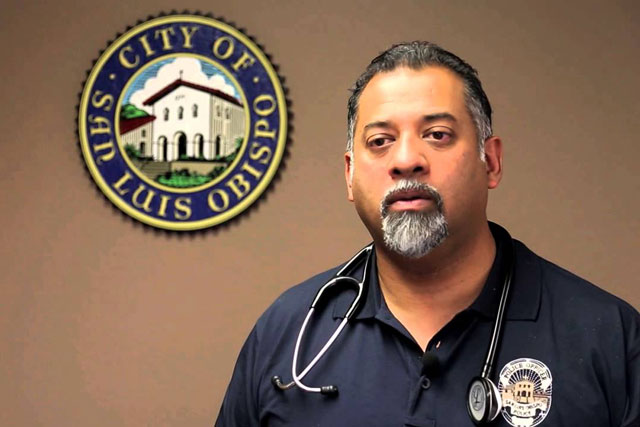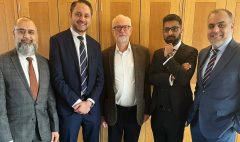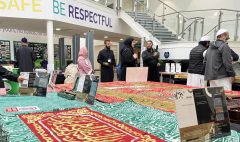U.S. Muslim reflects on 9/11 and his lonely fight against extremism
September 12, 2016 2023-08-19 16:27U.S. Muslim reflects on 9/11 and his lonely fight against extremism

U.S. Muslim reflects on 9/11 and his lonely fight against extremism
Following terrorist attacks in Paris and San Bernardino in 2015, Dr. Rushdi Abdul Cader cancelled his family’s vacation to focus on his grassroots educational program called Anti-V.I.R.U.S.(Anti-Violent Ideology Recruitment in the U.S.) to help combat anti-Muslim sentiment around the country. The self-funded program aims to differentiate Islamic beliefs from terrorist ideology while discrediting the aggressive recruitment efforts by extremist groups like ISIS.
American Muslim groups have struggled, and even fragmented, over how to make clear their rejection of extremism without becoming complicit in the demonization of Islam by political, law enforcement and media forces. And rather than easing in the years since the 9/11 attacks, the question has become only more fraught, with the rise of the Islamic State overseas and a fresh wave of anti-Muslim hostility in the United States.
Abdul Cader’s black-and-white stance on such a gray issue has turned him into an easy target for critics. He finds opposition from fellow Muslims disheartening, but not deterring.
In his thinking, Muslims are too interwoven into the fabric of the United States to put up with being treated as outsiders, and Islam is too beautiful a faith to be ceded to extremists. Other Muslims have valid reasons for not joining his fight, he said, but he’ll continue with or without them.
Abdul Cader, a full-time emergency physician who volunteers as a reserve officer for the local police force, recalls attending a law enforcement conference in 2010 where a guest speaker on the topic of militant Islam asked the audience how many American Muslims were “moderate.” Abdul Cader said he was stunned when the speaker replied, “You can count them on two hands.” Abdul Cader stood up and strode over to a microphone.
“I want to tell everybody in this room that I’m Muslim,” Abdul Cader recalled saying. “And at that point you could literally hear a pin drop. Everybody in the room turned around and looked at me. And I said, ‘Nobody freak out now.’ ”
Even though it was quickly defused, the episode unsettled him enough to get him thinking again about the deep mutual mistrust between American Muslims and law enforcement officers. He wondered how many other officers in California and beyond were receiving such bigoted “training” about Islam.
“To train law enforcement – people who can literally take away somebody’s civil rights – to give them that type of false information is just irresponsible,” he said.
Later that year, nearly a decade after the 9/11 attacks planted the seed in his mind, Abdul Cader launched ALERTUS, which stands for Alliance with Law Enforcement for Reporting Threats to the United States, a program that takes him to police stations and community centers in hopes of building trust between Muslim communities and the authorities.
Abdul Cader’s later program, AntiVIRUS, is aimed at families. He said the idea was to address misconceptions about when to contact the authorities, reiterating that “the only time someone should report is when incipient crime is suspected.” It also stresses preventative education, encouraging parents to examine their own behaviors and biases and to ask what model they’re providing their children. Slides show how radicalization can evolve, from losing empathy for others to celebrating the suffering of others to harming others.
“It took 10 years after 9/11 to do something about it – sometimes the answer doesn’t come right away,” he said. “Everybody was just numb after Sept. 11.”
Initially received with skepticism from Muslims who were wary of his closeness with the police, Abdul Cader said he’d found a warmer reception in the aftermath of the shootings last December in San Bernardino as California imams grasped for ways to minister to their shocked and fearful congregations after an American-born Muslim and his Pakistani wife gunned down 14 people at a holiday party. It helps that, so far, Abdul Cader’s programs are self-funded, without government cash or involvement.
Continue reading at: the McClatchy DC








